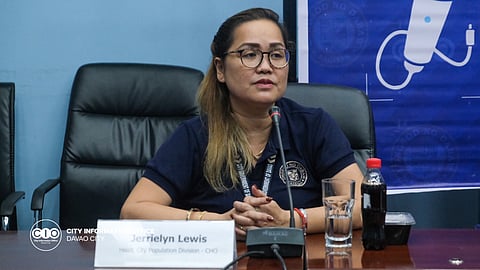
- NEWS
- the EDIT
- COMMENTARY
- BUSINESS
- LIFE
- SHOW
- ACTION
- GLOBAL GOALS
- SNAPS
- DYARYO TIRADA
- MORE

DAVAO CITY – To ensure that every Dabawenyo receives proper family planning services, the City Health Office’s (CHO) Population Division urged them to consult professionals.
Family planning involves considering the number of children a person wishes to have, including the choice to have none, and the timing of having them. It also takes into account marital status, career or work considerations, and financial situations.
If sexually active, family planning may involve the use of contraception (birth control) and other techniques to control the timing of reproduction.
Jerrielyn Lewis, the CHO’s contraceptive program manager, emphasized the importance of consulting professionals before choosing a family planning method to avoid complications.
“It is better to reach out to health professionals for our questions concerning family planning so that they can also guide us on the available methods. In choosing a family planning method, we also need to consider the needs of the body,” she said.
Lewis also noted that the CHO offers two types of family planning methods: temporary and permanent.
“Population officers, doctors, nurses, and midwives are in various CHO district health centers to cater to clients on their family planning needs. Consultations with these professionals are free and can be availed [of] by all Dabawenyos,” she said, adding that, for the temporary family planning methods, contraceptives - pills, condoms, and subdermal implants are available for free in health centers.
Lewis also emphasized the role of men in reproductive health, noting that their participation is essential.
Other family planning methods offered by the CHO include bilateral tubal ligation (BTL) for women and no-scalpel vasectomy (NSV) for men.
“Both methods are permanent and done by tying the fallopian tubes (for women) and the vas deferens (for men). Both BTL and NSV affect neither the strength of the person nor their desire to have sexual activity,” she said.
Lewis added that the CHO’s Population Division continues to conduct lectures on responsible parenthood and the importance of proper family planning, especially in far-flung areas.
